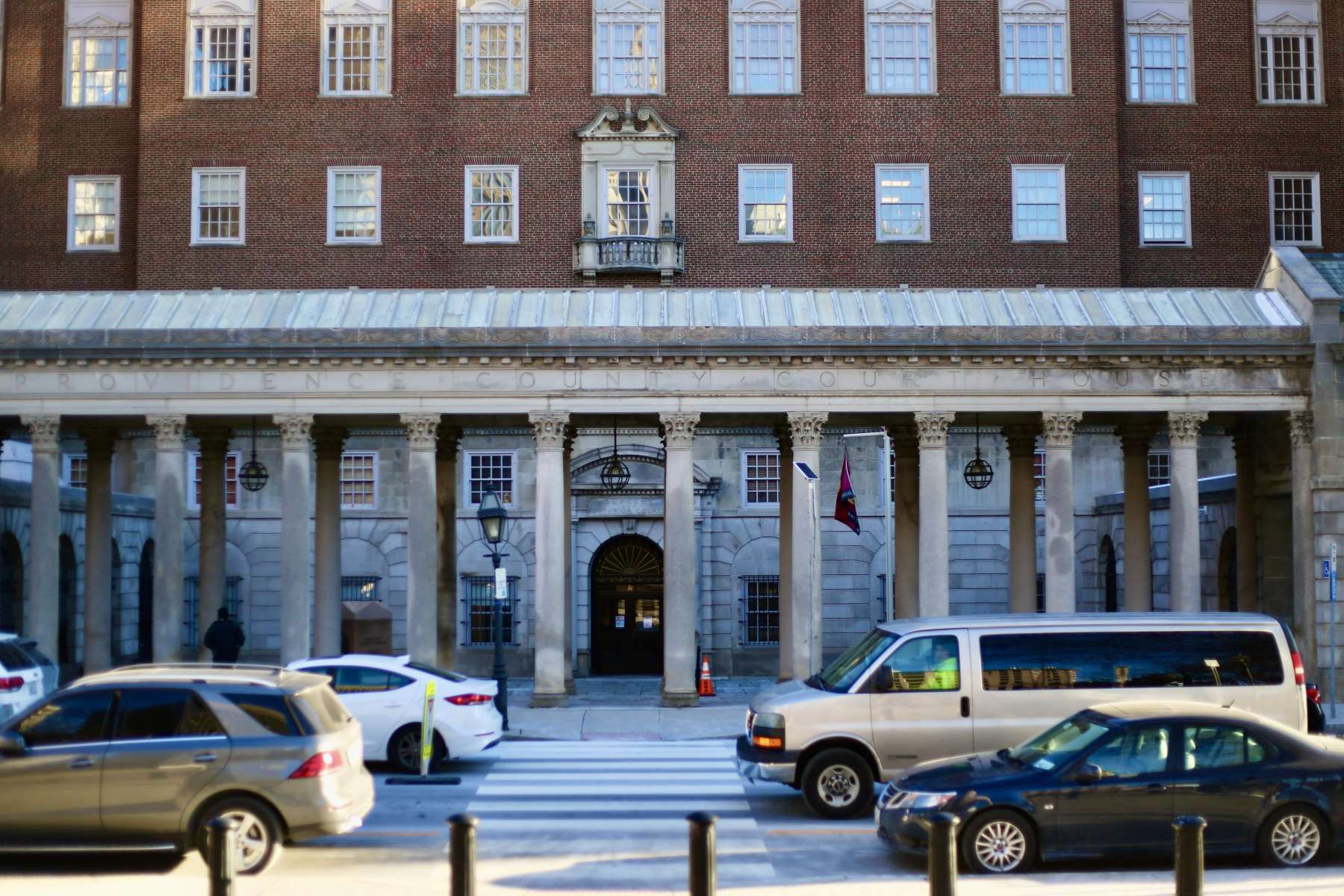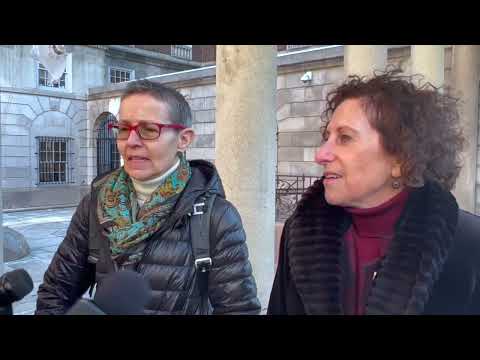State House eviction hearing delayed as Judge reviews “mountain of paperwork”
Rhode Island Superior Court Judge David Cruise spoke for all of two minutes in court on Wednesday as he explained his reasons for continuing the case until Friday at 11:30am. “After reviewing the new filings from last night, after court closed,” said Judge David Cruise, “I’m going to review and work on them and we’re going to come back here on Friday for a decision.”
December 14, 2022, 11:43 pm
By Steve Ahlquist
Rhode Island Superior Court Judge David Cruise spoke for all of two minutes in court on Wednesday as he explained his reasons for continuing the case until Friday at 11:30am. At issue is an eviction order issued by Governor Daniel McKee a week ago to the unhoused people who are sleeping in tents outside the State House. The Rhode Island ACLU and the Center for Justice maintain that evicting the people camping there is a violation of the First Amendment. The Governor counters that it’s an issue of health and safety.
Attorney Richard Corley filed a motion in Rhode Island Superior Court on Friday to stay the eviction order until a hearing could be had. Over the weekend the ACLU and Center for Justice filed much more information, as did the lawyers for Governor McKee.
“What happens in this situation,” said Judge Cruise, “is that first there was a request for a temporary restraining order. A temporary restraining order lasts ten days under the law. Ten days brings us to this [coming] Monday the 19th.
“After reviewing the new filings from last night, after court closed,” continued Judge Cruise, “I’m going to review and work on them and we’re going to come back here on Friday for a decision.”
Outside the courthouse RI ACLU Cooperating Attorney Lynette Labinger and Center for Justice Executive Director Jennifer Wood spoke to reporters.
“This was all an issue of math,” said Attorney Labinger. “The Judge had picked this date because court rules provide that a temporary restraining order can only be in effect without further hearing for ten days. We wanted to make sure it didn’t end up expiring on its own terms because it didn’t get heard.”
In addition, said Attorney Labinger, “the court goes into a Christmas schedule next week that makes it difficult to staff and both sides provided a mountain of paperwork to the Judge last night and we want him to read it and give him a chance to understand our arguments.”
The point, said the attorneys, is to get the people living outside in the cold into proper shelter.
“We are not comfortable with the fact that people who are sleeping outdoors have another two nights in the cold with bad weather coming,” said Attorney Wood. “The efforts to get people shelter – appropriate, safe, shelter that meets their needs – are still ongoing.
“It’s everyone’s expectation in this case… that this efforts need to continue.”
As to what the public can do, “the whole purpose of the folks sleeping outdoors at the State House is to elevate the issue,” continued Attorney Wood. “People need to contact the Governor, contact their elected officials, and ask that not only those sleeping outside of the State House, but the over 400 people who are currently without adequate shelter be addressed.”
“It’s going to snow and rain on Friday and hopefully someone will be able to get them off the street tonight or whenever, but I’m hoping they get off the street before Friday,” said Diandra, who works with Direct Action for Rights and Equality (DARE).
State Senator Cynthia Mendes led an encampment protest on State House property last year. She camped outside for 16 days, until Governor McKee finally provided adequate shelter for this sleeping unhoused last year.
The difference between this year’s encampment and last year’s effort was that Senator Mendes led a group of state officials, faith leaders, activists and unhoused and formerly unhoused people.
This year, said Mendes, we’re back with the Governor opening money on a high priced “Housing Czar” [Josh Saal, the Secretary of Housing] that has no plan a year later. “It’s wrong,” said Senator Mendes. “It’s criminal and it’s cruel and it’s complete unessessary.
“The advocates giftwrapped [the Governor] a plan a year and a half ago… I am here not only in support but to testify that this is wrong.”
Senator Mendes added that it’s “quite sketchy that I was allowed to sleep outside for 16 nights and now these people are being evicted. Why? The Governor is afraid to face the fact that he is utterly failing and there are lives in his hands. People will die and the solutions [the Governor is offering] are not real solutions.”
Governor McKee is being represented in this case by Attorney Bart Totten of the high priced law firm of Adler, Pollock and Sheehan. Uprise RI reached out to the office of Attorney General Peter Neronha to find out why his office is not defending the state.
Spokesperson Brian Hodge replied:
“The Governor’s Office represents itself from time to time in legal matters particularly when defending its own discretionary policy decisions and is doing so here.
“In this matter, the Governor’s Office first contacted the Office of the Attorney General to request legal representation when it learned that it would be served with a lawsuit.
“Not having been previously consulted in any manner regarding their decision to evict and the way those evictions would be effectuated, we declined their request for representation.
“The decision to retain outside counsel, as opposed to utilizing staff attorneys in the Governor’s administration, is a question best directed to the Governor’s Office.“
Lastly, if you are looking for some fun reading, check out this Memorandum of Law prepared by the ACLU for the case. The first few pages provide a legal history of State House occupations nationwide, going back to the Occupy movement in 2011. It’s also a primer on the applicable law from the Homeless Bill of Rights.







